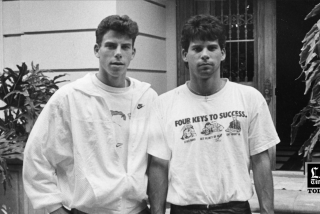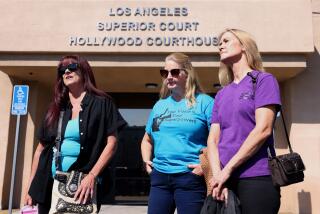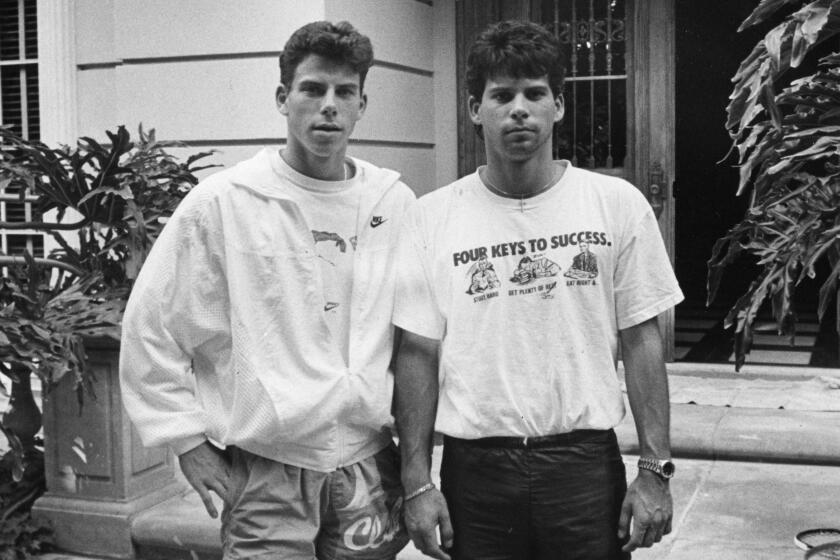Court Overturns Conviction in Council Disruption Case
Political gadfly Al Ramirez, convicted of disrupting a Pomona City Council meeting in 1989 by shouting at the mayor, has had his conviction reversed by an appellate panel because the jury selection discriminated against the unemployed.
Judges in the Appellate Department of Los Angeles Superior Court, by a 2-1 vote, ruled that Josephine Navarro should not have been excluded from the jury by a prosecutor whose only stated objection was that she was jobless.
Ed Miller, the deputy district attorney who prosecuted Ramirez, said he had not yet seen the decision and could not comment on whether the case will be appealed further, retried or dismissed.
Ramirez, who is Latino, appealed his Pomona Municipal Court conviction of a misdemeanor charge on grounds that the exclusion of Navarro and two other people with Latino surnames reflected racial discrimination even though other Latinos served on the jury.
Judges Robert Roberson Jr. and Alfred Margolis, in an 11-page written decision June 3, found no racial bias in the jury selection. They said the prosecutor properly excluded one Latino who had difficulty understanding him and another who was acquainted with Pomona Mayor Donna Smith, one of the main witnesses in the case.
But, the judges said, there was no justification for excluding Navarro.
When the issue was first raised in the trial court, Miller, the prosecutor, explained to the judge that he challenged the selection of Navarro because “I like to have jurors who I believe are actively participating in our society and are better able to make decisions. I feel, if I get to choose between somebody who is employed or someone who states they’re unemployed, as Miss Josephine Navarro did, I would prefer to have somebody who is employed.”
Taking note of that statement, the appellate majority said only: “The implications of this sort of reasoning are obvious and require little discussion. Just as obvious are the reasons why those who are unemployed are eligible to serve as jurors.”
The majority said that excluding the unemployed violates a defendant’s right to a jury drawn from a cross section of the community.
But in a strongly worded 11-page dissent, Judge Lorna Parnell said the unemployed cannot be likened to religious or racial groups whose exclusion would clearly be wrong. The jobless are not even an economic class, she said, because they “consist of everything from attorneys, accountants and engineers to unskilled laborers.”
Parnell said the majority ignored a California Supreme Court conclusion in another case, which held that employment and job experience are proper considerations in jury selection.
Ramirez, who now lives in Hemet, said he would have preferred a reversal on free speech grounds. In fact, Judge Parnell said in her dissent that the trial record contains ample evidence to support the jury finding that Ramirez was guilty of a misdemeanor for disrupting the council meeting.
Ramirez said he nevertheless feels vindicated in his decision to fight rather than accept a sentence of 25 hours of community service. Ramirez said he has spent thousands of dollars fighting the decision because “there are some things I will not back off from.”
He is adamant that his behavior at the council meeting was no more than proper exercise of free speech. “I believe I had a right to say what I said,” he said.
Having chafed under a procedural rule at council meetings that limited speeches from audience members to 5 minutes apiece, Ramirez interrupted a lengthy staff presentation at the council meeting Feb. 21, 1989, to shout: “How much time does this man get?”
Mayor Smith ruled him out of order; Ramirez retorted that she was out of order, and Smith ordered the sergeant-at-arms to remove him. That was the third time in six months that Ramirez had been arrested for disrupting a council meeting, and it resulted in his first--and only-- conviction.
Ramirez, 64, taught classes in music, religion and sexuality at his Miracle Music Ministry in Pomona before moving to Hemet about 1 1/2 years ago. He still regularly prints and mails leaflets denouncing the Pomona city government as corrupt and charging politicians with everything from indecent exposure to drug trafficking.
His clashes with the mayor and council began over a rezoning issue but extended to many other matters before he moved.
More to Read
Sign up for Essential California
The most important California stories and recommendations in your inbox every morning.
You may occasionally receive promotional content from the Los Angeles Times.









